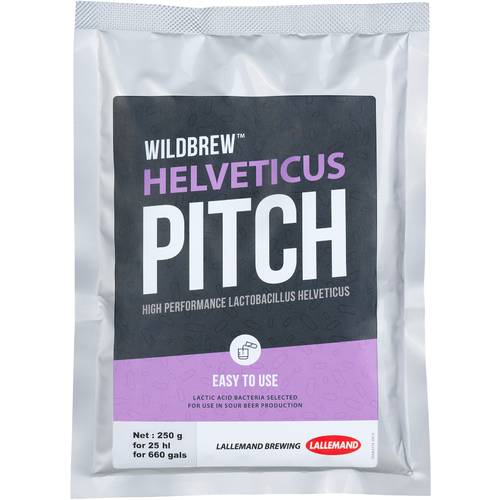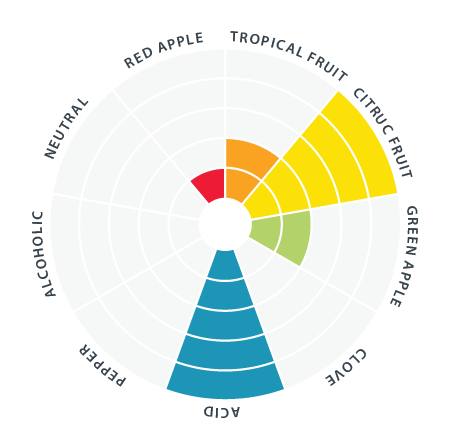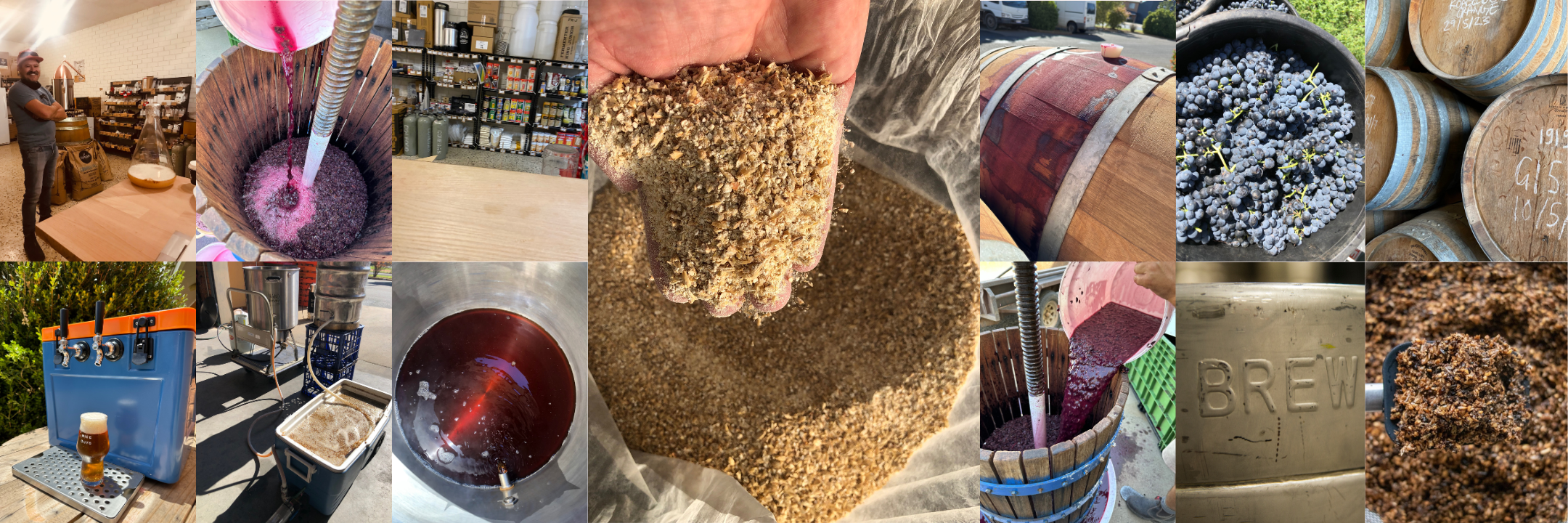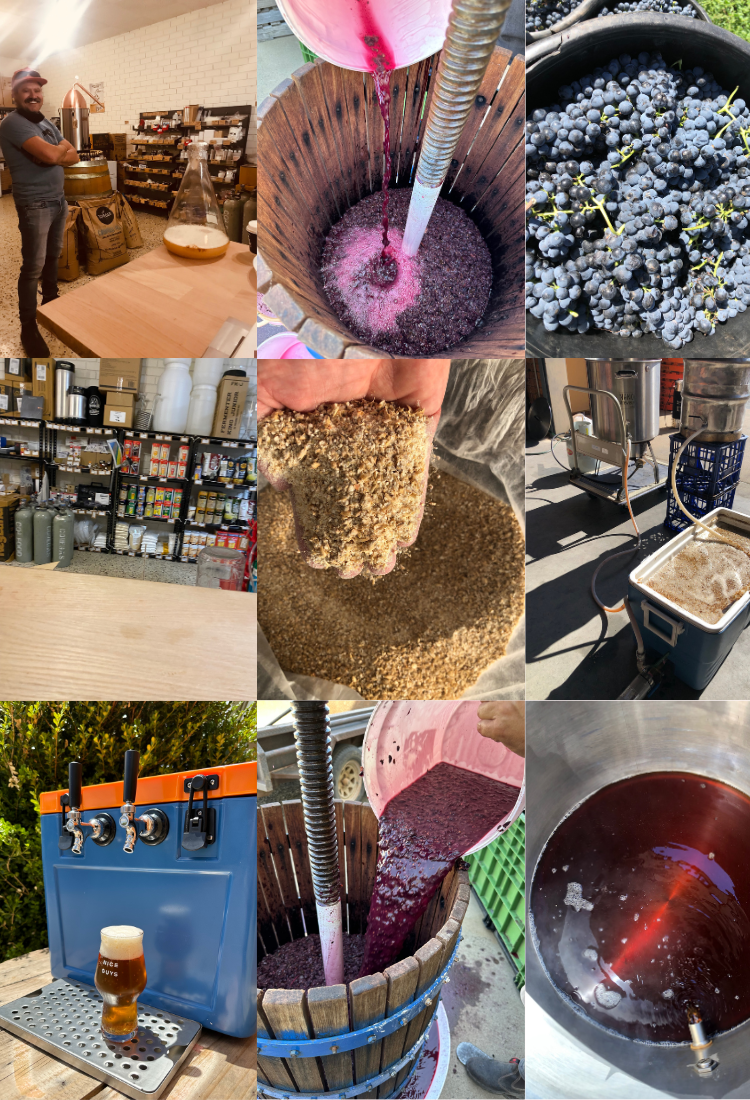Description
WildBrew™ Helveticus Pitch 10 grams is a ready-to-use dried bacteria, a strain of Lactobacillus helveticus specifically selected for its ability to produce a wide range of sour beer styles. In comparison to WildBrew™ Sour Pitch, the new bacteria produces a more intense citrusy flavor at higher temperatures. Additionally, WildBrew™ Helveticus Pitch will deliver unmatched consistency, effortless application, fully assured performance, and unparalleled purity for brewing the sour beer style of your choice.
WildBrew™ Helveticus Pitch is recommended at a dosage of 10g/hl to pour directly into the unhoped wort.
WildBrew™ Helveticus Pitch is part of a wider set of solutions for sour beer making, which also includes the newly launched WildBrew™ Philly Sour that can produce lactic acid and ethanol simultaneously.
Temp Range: 38-45°C
Dosage: 10g/hl (0.1g per litre or 1g per 10L) ensuring temperature of unhopped wort is 38-45°C
In Lallemand’s Standard Wort conditions, WildBrew™ Helveticus Pitch bacteria exhibits:
- Fast pH drop that can be completed within 2 days (typically within 24 to 36 hours).
- High lactic acid versus lower acetic production.
- Aroma and flavor is citrus and tangy with a hint of fruit.
- The optimal temperature range for WildBrew™ Helveticus Pitch when producing sour beer styles is between 38°C to 45°C.
Fermentation rate, fermentation time and pH drop are dependent on inoculation density, bacteria handling, fermentation temperature and nutritional quality of the wort.




